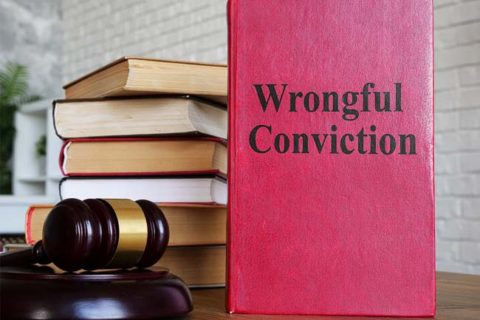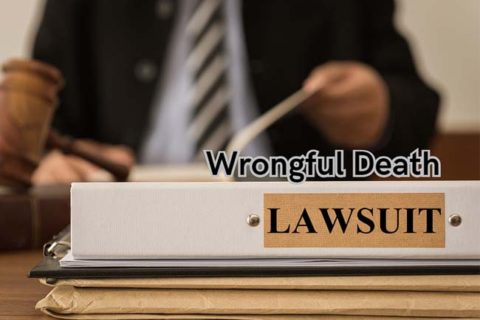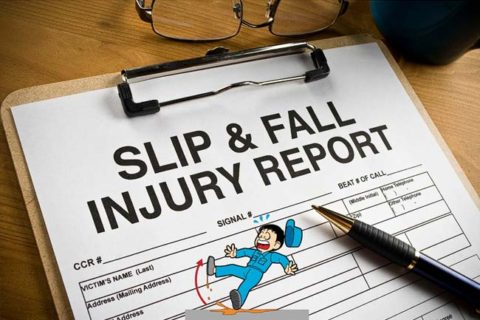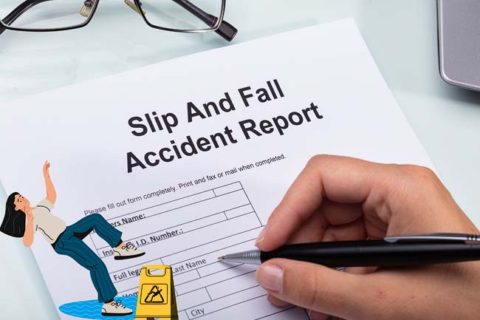Every U.S. state has wrongful death laws with their respective versions. In terms of providing compensation, this is a definite rule that is always applied in every state, as long as the lawsuit filed meets the requirements.
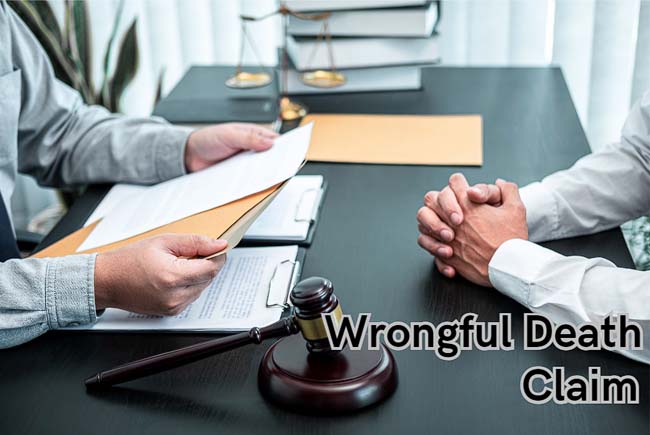
Depending on the jurisdiction where the case is being processed, the law will determine who is entitled to receive compensation from a wrongful death claim. And of course, it becomes the basis for where the compensation will go.
What is a Wrongful Death?
The majority of states define the term “wrongful death” as the death of a person due to another’s negligence and/or wrongful actions.
Well, these wrongful acts include:
-
- Reckless driving
- An unintentional attack such as assault and/or battery
- Death in another crime
- Vehicular manslaughter
- Manslaughter or murder
In addition, there are some common situations that are the cause of wrongful death, such as:
-
- Accidents at the workplace
- Medical malpractice
- Accidents that involve pedestrians
- Defective products
- Aviation accidents
- Dog attack
- Etc.
Who Can File a Wrongful Death Lawsuit?
After someone dies as a result of someone else’s negligence or intentional act, a lawsuit can be filed by the survivors of the deceased person.
Of course, the laws in each state have legal requirements and procedures for determining who can file a wrongful death claim.
Even though each state’s laws have their own rules regarding who may file, the laws of most states generally allow personal representatives of a deceased person’s estate to file. They are usually the deceased person’s spouse or adult children.
A wrongful death lawsuit is similar to an act of survival for the deceased family. The lawsuit aims to obtain compensation for costs and losses that arose from the time the injury occurred until the person died. Of course, compensation awarded is subject to estate, inheritance, or income tax laws.
When Should a Wrongful Death Lawsuit Be Filed?
Every state owns a statute of limitations, which is a law to establish a certain time period within which legal action should be taken. In short, it is the deadline to file a wrongful death lawsuit.
A wrongful death lawsuit can usually be filed starting on the date of death of the deceased person. Most states set a filing period of at least two years. But some allow more time to do so.
In Virginia and Washington, DC, for example, the time limit for filing a wrongful death lawsuit is two years from the date of the person’s death. However, if the person’s date of death is unknown, family members can file a lawsuit starting after they found him or reasonably should have found him.
In Maryland, the term is three years, from the date the cause of death was discovered. In contrast to Virginia, the statute of limitations for filing a wrongful death lawsuit in Maryland (under discovery rules) cannot begin until the filing party discovers that their loved one’s death was caused by the fault of the negligent party.
Of course, the statute of limitations rules in each state may differ as well. If you have a similar case, it’s best to look for information regarding the statute of limitations for wrongful death lawsuits that is applicable in your state.
Who Gets Compensation from a Wrongful Death Lawsuit?
Under the state’s law, financial compensation can go to the surviving family members, with priority given to the deceased’s spouse and children.
In Pennsylvania, for example, money from a wrongful death lawsuit will be awarded to the surviving spouse, children, and parents. However, the deceased’s siblings, aunts, uncles, grandparents, and other relatives do not qualify for filing a wrongful death lawsuit.
Actually, there are two types of beneficiaries of wrongful death lawsuit compensation, including:
1. Primary beneficiaries
Individuals who are among the main beneficiaries of a wrongful death claim are the surviving spouse, children, and parents of the victim. They are entitled to the lion’s share of the compensation awarded.
2. Secondary beneficiaries
Individuals who are included as secondary beneficiaries are other family members, such as siblings or grandparents, or extended family who depend on the deceased for financial support.
In some cases, someone who is not related to the person who died as a result of a wrongful death but is financially dependent on them may benefit from receiving financial compensation.
What Compensation May You Receive from a Wrongful Death Lawsuit?
When it comes to the benefits you may receive from a wrongful death lawsuit, it can depend on several factors. But generally, the money will be given to cover and/or compensate for the losses experienced by the victim’s family. There is no doubt that they will experience financial difficulties after a loved one dies.
Some types of damages that you may receive if a wrongful death lawsuit is successfully approved include:
-
- Medical and hospital bills
- Funeral and burial expenses
- Estate administration expenses
- Lost financial support, which is usually expected of a deceased person
- Lost parental guidance of the deceased person
- The loss of love and companionship
- Lost any inheritance that a deceased person might have left if they were still alive.
It’s important to note that the damages awarded in a claim will depend on the facts of the case. If you have an experienced lawyer, they will review your case first and advise you on what compensation you should seek.
Where Does the Financial Compensation Come from in a Wrongful Death Lawsuit?
Compensation due to the wrongful death of a person will be given by the at-fault party. It can come from their policy, whether it is home insurance, auto insurance, renter’s insurance, or premises liability insurance.
If the at-fault party does not have sufficient insurance to fully compensate the victim’s family for their losses, they may face legal action, which the victim’s family can file for damages beyond what their insurance covers.
What Factors Determine Wrongful Death Compensation?
In determining how much money to give to the family of a person who died due to a mistake as death compensation, there are a few factors that influence it. For the specific calculation, it can vary based on the jurisdiction and circumstances of the case.
The following are several things to consider:
-
The deceased’s age and health
Young people in good health surely have the potential to earn more money if they are still alive. Of course, lost wages will be counted. This factor will be considered in determining the amount of monetary compensation for the surviving family.
-
Medical bills
Care and treatment costs will be included in financial compensation if the deceased person incurred these costs before his death.
-
The deceased’s education and training
The financial compensation will likely be calculated based on the deceased’s income as well as projected future income based on his training and experience.
-
Funeral expenses
The at-fault party must be responsible for reimbursing the deceased person for funeral expenses.
-
Value of lost benefits
It could be pension and insurance benefits. If the deceased was the source of the family’s health insurance, then this must also take into account these costs as well as reduced pension funds or other sources of funds.
Well, those are some factors that can influence determining how much money will be paid to the surviving family.
To note: A court can provide punitive damages in addition to compensatory damages. Unlike financial compensation, punitive damages will be given with the aim of punishing the guilty party for their mistake, which caused the death of another person, as well as preventing the mistake from happening in the future.

A bookworm and researcher especially related to law and citizenship education. I spend time every day in front of the internet and the campus library.
